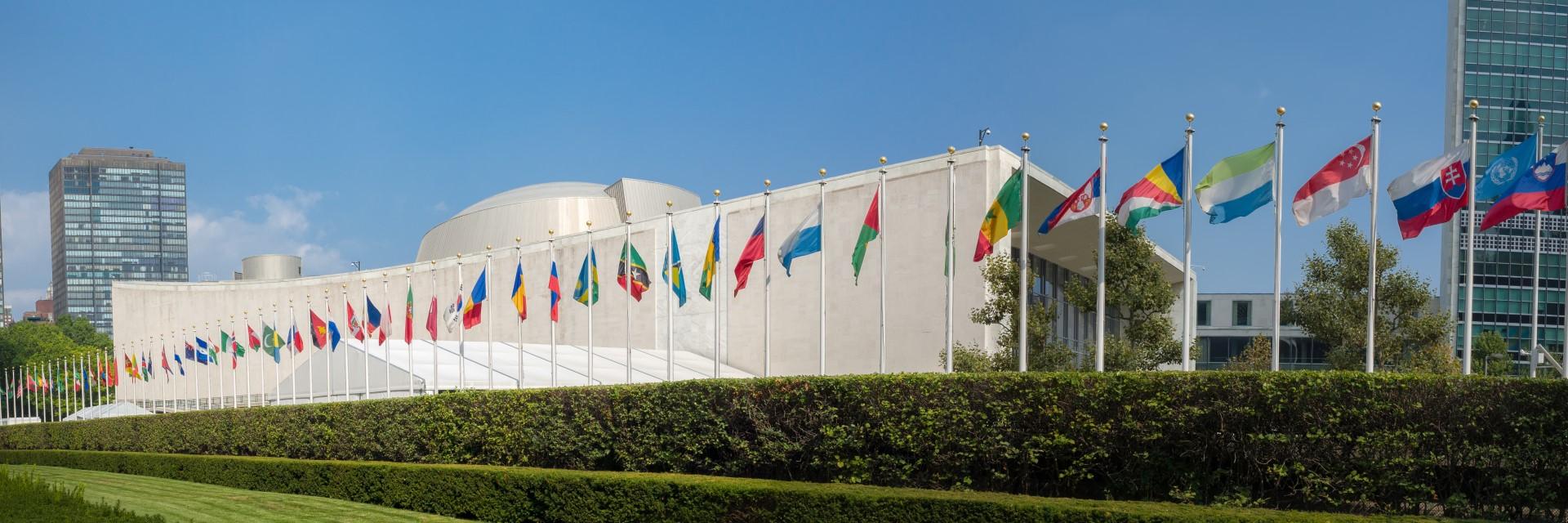Dear members of the media, it is a pleasure to be with you again. Now that you are preparing for the High-level week of the General Assembly, allow me to begin with the very sad news and tragic developments in North Africa.
I want to express my deepest condolences and my full solidarity with all those affected by the devastating earthquake in Morocco and the massive floods in Libya.
These heart-wrenching disasters have claimed thousands of lives and affected countless families and communities.
The United Nations is mobilizing to support relief efforts and we will work in any and every way we can with partners to help get emergency assistance to those who so desperately need it.
In recent days, I have attended a number of gatherings of various groupings of world leaders.
In Nairobi, to focus on climate solutions in Africa.
In Jakarta, to strengthen our partnership with Southeast Asian nations.
In New Delhi, for a summit of G-20 leaders.
And tomorrow in Havana, to meet with leaders of the G-77 and China.
But next week begins the greatest G of all – the G-193 – the High-Level Week of the General Assembly.
It is a one-of-a-kind moment each year for leaders from every corner of the globe to not only assess the state of the world – but to act for the common good.
Action is what the world needs now.
We will be gathering at a time when humanity faces huge challenges – from the worsening climate emergency to escalating conflicts, the global cost-of-living crisis, soaring inequalities and dramatic technological disruptions.
People are looking to their leaders for a way out of this mess.
Yet in the face of all this and more, geopolitical divisions are undermining our capacity to respond.
A multipolar world is emerging.
Multipolarity can be a factor of equilibrium.
But it can also lead to escalating tensions, fragmentation and worse.
So, to bring our multipolar world together, we need strong, reformed multilateral institutions, anchored in the United Nations Charter and international law.
Today’s multilateral institutions that were created after the Second World War reflect the power and economic dynamics of that time, and so, they need reform.
I know reform is fundamentally about power – and there are obviously many competing interests and agendas in our increasingly multipolar world.
But at a time when our challenges are more connected than ever, the outcome of a zero-sum game is that everyone gets zero.
I will go into further detail in my address to the General Assembly on Tuesday.
In addition, next week we will also shine a spotlight on how to rescue the Sustainable Development Goals at the half-way mark to 2030.
On how to boost ambition to tackle the climate crisis.
On crucial questions of funding and investments for development.
On health challenges, hotspots and a host of other issues.
My appeal to world leaders will be clear:
This is not a time for posturing or positioning.
This is not a time for indifference or indecision.
This is a time to come together for real, practical solutions.
It is time for compromise for a better tomorrow.
Politics is compromise.
Diplomacy is compromise.
Effective leadership is compromise.
If we want a future of peace and prosperity based on equity and solidarity, leaders have a special responsibility to achieve compromise in designing our common future for our common good.
Next week here in New York is the place to start.
Thank you.

